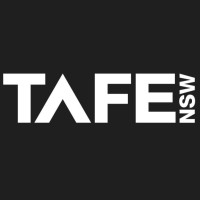
TAFE NSW
TAFE NSW is one of Australia's leading vocational education and training provider with over 100 years of experience. It caters for students at the local level, the national level and the international level. TAFE NSW has over 130 locations across the state. Through a series of forums, TAFE NSW works hard to ensure that it is meeting the expectations of the community and the industry in each local area. RTO: 90003






